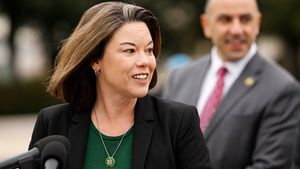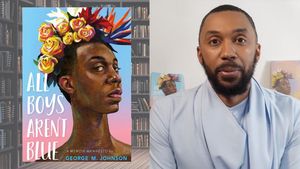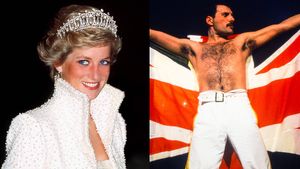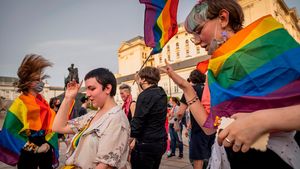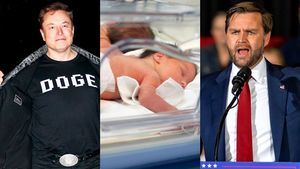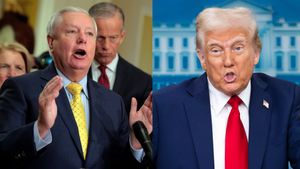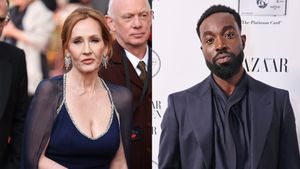For 25 years, OUT has celebrated queer culture. To mark our silver jubilee, we look back at some of the biggest, brightest moments of the past 9,131 days.
"Yeah, you gay, but you ain't no f****t," the man explained with pride--smirking as if he had offered me a generous compliment. Seconds earlier a young man had walked past with a glide that caused a deep, uncomfortable stir within the barbershop. One of the patrons laughed and said, with a forced disdain, "These f****ts are too much in the summertime."
Motioning in my direction, the barber, a friend, responded, "Hey man, chill out." But the ugly truth is that to people like my barbershop antagonist, and many others, how gay men perform gender makes a difference. There are gay men who kneel at the altar of patriarchal masculinity--wanting the perceived benefits that heterosexual men enjoy--and there are gay men who embrace their "difference" and exist in the world in ways that feel most authentic to them.
This sent me back to a text I'd received from a gay friend/journalist asking when I thought the first gay male athlete would come out in one of the big four sports (football, basketball, hockey, baseball). It's a question I've been asked before, and I've always been deeply troubled by it, without understanding why. And then I realized there were connections between the question and my experience in the barbershop.
What is this need--thirst, even--for a gay male sports star? I've come to think it's deeply rooted in our childhood experience of being gay.
When I was in high school, not only was I not open about my sexuality, but I used homophobic slurs to direct attention onto others while secretly wrestling with my own fears. To elevate my perceived status (while diminishing the status of others), I performed stereotypical acts of patriarchal masculinity--that toxic idea that men have the moral and social authority to decide the direction of our lives.
As young and older gay adults, we want to be included. Having an openly gay sports star not only helps us feel a sense of belonging but also proves to our critics that one of our own is better than some of them. Revenge feels better when aimed at a bully's most sacred space. Yet the feelings of accomplishment are fleeting, because our anger is misguided. We must look within.
This is partly why gay men only half-heartedly offer praise and support to trans, lesbian, and gender-nonconforming athletes. Somewhere, deep down, we don't believe their accomplishments can help us, as gay men, take what we believe is our rightful place in the world. Their achievements will not silence the little boy inside of us all that never stopped crying. Because we have not searched within, we believe our childhood nightmares can only be quelled when "we" accomplish that extraordinary feat of defining ourselves on "their" field of battle--the same field on which many of our fathers believed they could make a man out of us. The question remains: Do gay men want a superstar gay male athlete to prove to heterosexuals that we're worthy of love, or to prove it to ourselves?
We are different. And that difference was often met with psychological and physical violence. The threat of violence caused many of us to fix our eyes toward safety. But true safety is an illusion. No one can predict what will happen, so we have to take risks and, within those moments, attempt to be our most authentic selves. Yet, our desire to find our own gay sports superman may also speak to our wildest homoerotic fantasy: a warrior from our ranks who will ensure we never have to wait until "it gets better."
As long as gay men, like my teenage self, continue to genuflect to a form of gender performance that will never honor the beauty in our difference, we will forever demoralize ourselves looking for external validation.
When a heterosexual man sees gay, trans, bi, or queer men gliding, sliding, swaying, or sashaying in their own truth, I believe that he simultaneously experiences an unrecognizable terror and an indescribable joy. The terror is based on what our existence might say about him. The joy is the whisper of a fairy-tale ending in which his life is free from gender performance and gender roles.
James Baldwin once said, "You haven't gotta prove it to anybody. All you gotta do is know it. You're a man, baby." And those of us who identify as men must work to ensure that our definitions of manhood are never linked to the oppression and dominance of others.







